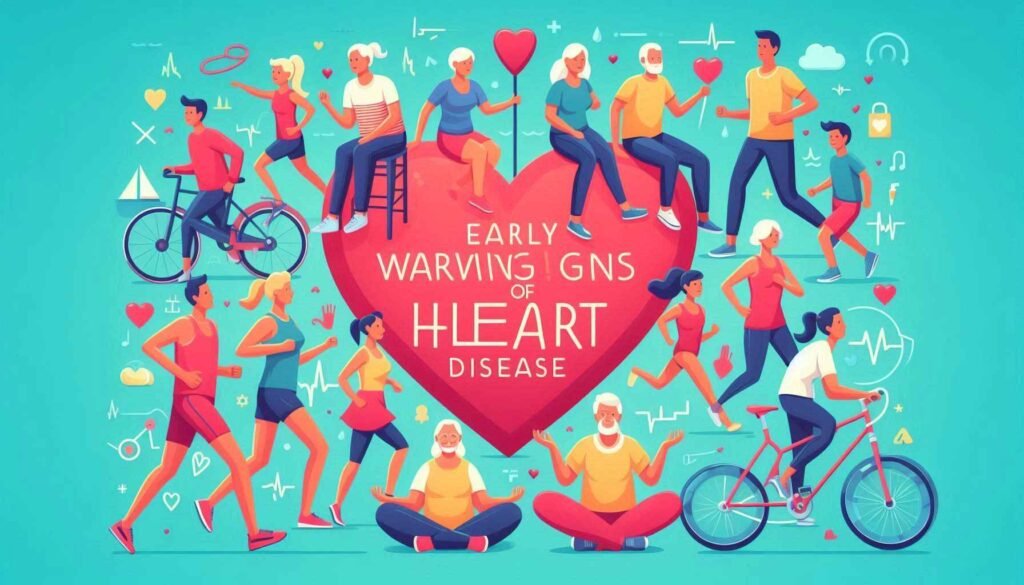
Cancer is a word that can stir fear, but it also inspires hope. Thanks to recent advancements in cancer research, the landscape of treatment and prevention is transforming. Imagine a future where cancer treatments are personalized to your DNA, where the immune system is trained to fight off cancer like it does with infections, and where early detection is so advanced it finds cancer before symptoms even begin. This is not science fiction; it’s happening now. In this post, we’ll explore the latest breakthroughs in cancer research that you need to know about. These innovations are revolutionizing the way we understand, prevent, and treat cancer.
1. Proteogenomics: Understanding Cancer on a Deeper Level
Cancer is not one single disease but rather a collection of hundreds of different diseases. Each tumor is unique, which makes understanding and treating cancer incredibly complex. That’s where proteogenomics comes in—a game-changing approach to cancer research.
What is Proteogenomics?
Imagine your genes as a recipe book, and proteins as the final dish that ends up on the dinner table. Genomics tells us what’s written in the recipe, while proteomics shows us how it actually turns out. Combining these two sciences into what researchers call proteogenomics gives us a much clearer understanding of how cancer works at a cellular level.
Latest Breakthroughs
The Clinical Proteomic Tumor Analysis Consortium (CPTAC) funded by the National Cancer Institute recently released a proteogenomic dataset involving over 1,000 tumor samples. This research reveals important patterns about DNA repair, metabolism, and immunity—all of which play a significant role in how cancer grows and spreads.
By studying the interplay between genes and proteins, researchers have been able to pinpoint unique weaknesses in different types of cancer. This kind of information could pave the way for highly targeted therapies that attack the weak spots in a cancer cell while sparing healthy ones.
Why It Matters for Patients
The true power of proteogenomics lies in its ability to tailor treatment specifically to each individual’s cancer. No two cancers are alike, and the one-size-fits-all approach is giving way to precision medicine that is as unique as the patients themselves.
2. Immunotherapy: Letting Your Immune System Do the Work
Imagine your body being its own superhero, destroying cancer cells without the harsh side effects of traditional chemotherapy. Immunotherapy is doing just that by harnessing the power of the body’s natural defenses.
How Immunotherapy Works
Cancer cells are tricky—they can hide from your immune system by sending false signals that tell it, “Nothing to see here!” Checkpoint inhibitors are a type of immunotherapy that blocks these false signals, allowing your immune system to recognize and destroy cancer cells. Another type, CAR T-cell therapy, involves modifying your immune cells in a lab to better recognize and kill cancer cells.
Success Stories and Challenges
One of the most remarkable successes of immunotherapy is in the treatment of melanoma and certain types of lung cancer. The results have been life-changing for many patients. However, immunotherapy doesn’t work for everyone, and researchers are still working to understand why.
The key to expanding the benefits of immunotherapy lies in understanding the individual’s tumor markers. Personalized immunotherapy is on the horizon, where patients receive treatments specifically designed to target the weaknesses of their particular cancer.
A Look to the Future
One of the most exciting aspects of immunotherapy is its potential for long-lasting effects. When the immune system learns to attack cancer, it creates a memory that can help prevent recurrence, much like how vaccines work. The ongoing research aims to extend these benefits to more types of cancer and to increase the number of patients who can respond positively to the treatment.
3. Breast Cancer: Personalized Screening and Targeted Treatments
Breast cancer has been one of the most studied types of cancer, and it has benefited immensely from recent breakthroughs.
Personalized Screening for Better Outcomes
For years, breast cancer screening was the same for everyone. However, new studies, like the Wisdom Study, are working on developing personalized screening schedules. Women with higher genetic risk might start screenings earlier, while those with lower risk could avoid unnecessary procedures. This individualized approach helps reduce anxiety, costs, and the risks associated with over-screening.
Liquid Biopsies: Detecting Cancer Early
Another breakthrough in breast cancer detection is the development of liquid biopsies. Unlike traditional tissue biopsies, which can be painful and invasive, liquid biopsies involve a simple blood draw that detects fragments of DNA from cancer cells. This non-invasive approach means that doctors can monitor cancer in real-time, making it possible to adjust treatment quickly and accurately.
Targeted Therapies and Hormone Treatments
For breast cancers that have specific proteins, like HER2, targeted drugs have significantly improved survival rates. These drugs specifically target the HER2 protein, shutting down its ability to promote cancer growth. Additionally, hormone therapy has shown success in treating cancers that rely on hormones like estrogen. Drugs like tamoxifen block these hormones, effectively starving the cancer of what it needs to grow.
4. The Power of Multi-Omic Profiling
Cancer research has moved beyond just studying genes or proteins. Today’s scientists are using multi-omic profiling, which looks at several layers—genomics, proteomics, and even metabolomics—all at once.
Why It’s Important
Imagine trying to solve a puzzle with only a few pieces—you might see part of the picture, but you can’t see everything. Multi-omic profiling is like putting all the pieces together, allowing researchers to see how changes in DNA affect proteins, and how these changes, in turn, impact a cell’s metabolism and overall behavior.
Latest Findings
Researchers have discovered specific DNA methylation patterns that reveal how certain cancers can be more vulnerable to specific therapies. This kind of insight is crucial for developing new treatments and for selecting which existing treatments might work best for a particular patient.
5. Combating Cancer Resistance
One of the toughest challenges in cancer treatment is resistance—when a tumor initially responds to treatment but then adapts and continues to grow. Research is now focusing on understanding the mechanisms behind this resistance.
The Role of Tumor Heterogeneity
Cancer cells within the same tumor can vary significantly. It’s this heterogeneity that often leads to treatment resistance. By studying both genetic mutations and protein changes, researchers are discovering patterns that can help them design combination therapies—using multiple drugs that target different aspects of the cancer simultaneously. This approach reduces the likelihood of the tumor adapting and developing resistance.
6. Preventing Cancer: Genetic Insights and Lifestyle Factors
The best cancer treatment is prevention. While genetics play a significant role in cancer risk, lifestyle factors are just as important.
The Confluence Project
In one major study, researchers are identifying genetic combinations that increase breast cancer risk. Knowing this information allows individuals to take proactive measures, such as increased screenings or even preventive medications.
Lifestyle Adjustments for Cancer Prevention
While some cancer risks are out of our control, others can be managed. Eating a balanced diet, staying physically active, avoiding tobacco, and limiting alcohol consumption are all effective ways to reduce cancer risk. Research emphasizes that even small changes can have a significant impact over time.
7. Collaboration and Data Sharing: Paving the Way for Future Breakthroughs
Cancer research is a global effort, and collaboration is key to speeding up discoveries and translating them into effective treatments.
The Importance of Data Sharing
Projects like the Clinical Proteomic Tumor Analysis Consortium make their findings available to researchers around the world. Such data sharing means that a discovery in one lab can quickly be tested and applied in others, significantly accelerating the pace of new treatments.
Precision Medicine: The Future of Cancer Treatment
The ultimate goal of all this research is to make precision medicine the standard of care. By understanding the unique characteristics of each patient’s cancer—right down to the genetic mutations and protein markers—doctors will be able to design treatment plans that are both more effective and have fewer side effects.
Conclusion
The field of cancer research is advancing at an incredible rate. Breakthroughs in proteogenomics, immunotherapy, personalized breast cancer screening, and multi-omic profiling are leading us toward a future where cancer is no longer a terrifying diagnosis but a manageable condition. With every discovery, the dream of a cancer-free world becomes closer to reality.
Staying informed and proactive is key. The more we learn about these groundbreaking advancements, the better equipped we are to advocate for ourselves and our loved ones. While the journey is far from over, the path ahead is full of promise, and every step brings us closer to understanding and conquering cancer for good.



